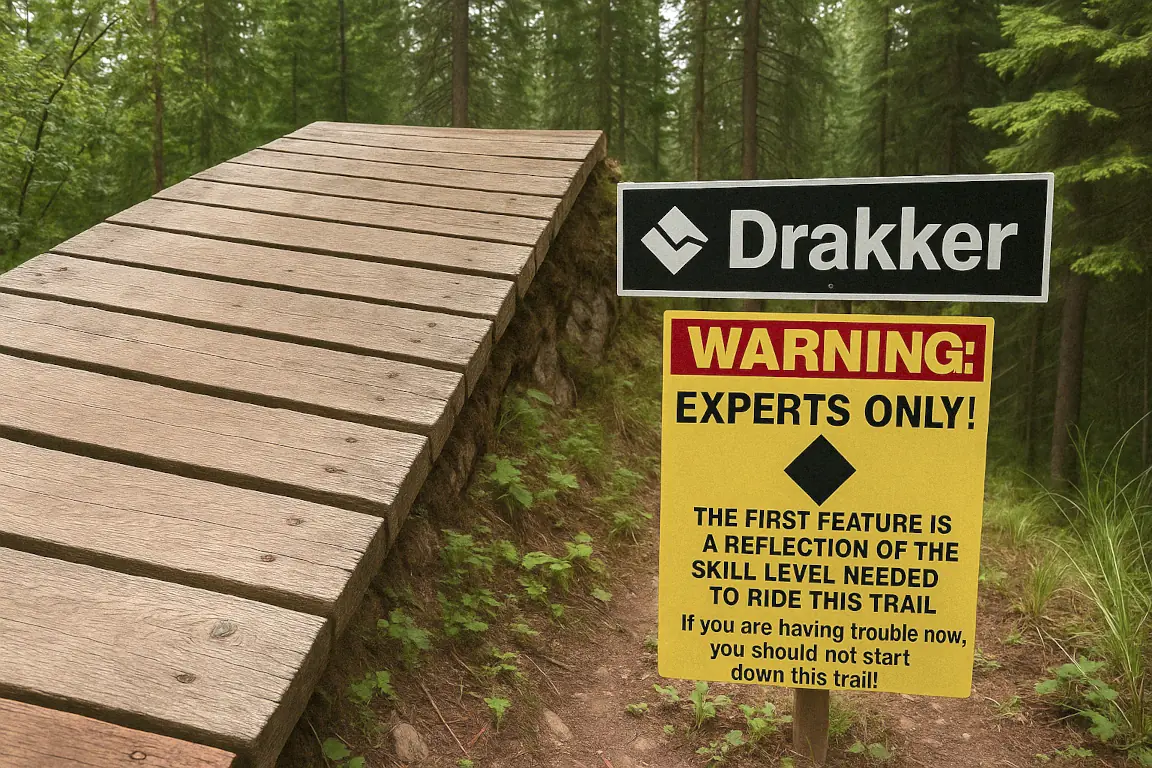
Trail Signage and Risk Management
Learn how to create effective trail signage systems and implement risk management strategies to keep riders safe and minimize liability concerns.
Overview
Understanding Trail Signage and Risk Management
Effective signage and risk management are essential components of a safe, enjoyable trail system that minimizes liability while preserving the mountain biking experience.
- Helps riders navigate the trail system effectively
- Communicates potential hazards and technical features
- Sets clear expectations for trail difficulty levels
- Helps limit liability for trail builders and land managers
- Enhances the overall rider experience while promoting safety
Types of Trail Signs
A comprehensive trail signage system includes several types of signs, each serving a specific purpose:
Provide overview maps, rules, emergency contacts, and land management information
Help riders navigate through the trail system with directional information
Communicate the technical challenge level of trails using standardized symbols
Alert riders to specific hazards or technical features requiring caution
Provide context about natural features, history, or ecological information
Risk Management Principles
Risk management for mountain bike trails involves identifying potential hazards, assessing their severity and likelihood, implementing controls, and regularly reviewing effectiveness. The goal is not to eliminate all risk (which would remove the challenge that riders seek) but to manage it appropriately.
Difficulty Rating Systems
Most trail systems use a color-coded difficulty rating system similar to ski resorts:
Green Circle: Easy/Beginner
Relatively flat, wide trails with minimal obstacles
Blue Square: Intermediate
Moderate slopes, some technical features, narrower tread
Black Diamond: Advanced
Steep sections, challenging obstacles, technical features
Double Black Diamond: Expert Only
Very steep, large mandatory drops/jumps, highly technical